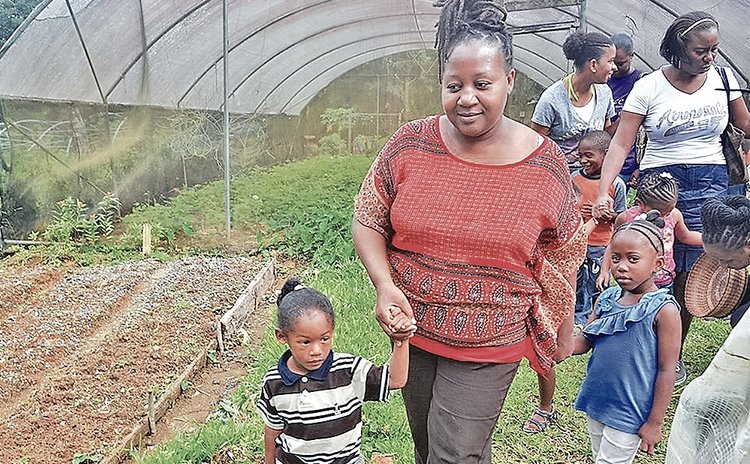Living in harmony with the land

Dawn Francis believes dreams should be pursued.
And so, she resigned from her job at a bank after 20 years to do exactly that in 2011.
Her dream has been to practice sustainable, organic agriculture according to the principles of permaculture.
Permaculturevisions.com describes permaculture as an intelligent design that uses free, sustainable energies and resources.
According to the site, "It is energy-wise and collaborative to minimise the impact of a site on the surrounding environment. A good design has great potential…"
Dawn explains that permaculture incorporates and maintains sustainable energy in farming through rainwater harvesting, organic agriculture and generally using the land without any negative environmental impact.
"It's a dream I had. I remember I would in the bank and I would be writing all these little ideas…I spoke with my family and I took the leap," she explains.
There was no turning back. Dawn started D-Smart Farm and formed a non-governmental organisation (NGO) named Eco-Balance.
She obtained funding to organise a camping site amidst trees in the rain forest without disturbing the environment. She also established an on-site classroom for visiting students.
It has not smooth sailing. Recently, a challenging situation forced her to downsize her project from 2.5 to 1.5 acres; she's still trying to recover from this setback.
Dawn grows a wide variety of organic vegetables and herbs. Recent challenges have slowed production, but she's regrouping and has been planting new crops.
Dawn uses organic fertilizer exclusively -- manure from her chickens, rabbits and goat.
And she swears by the herbal and compost teas and fish emulsion she makes as innovative nutrition supplements for her plants.
She has also been teaching fishermen how to make the potent fish emulsion fertilizer.
Dawn rests the manure she uses for her plants for 12 weeks before applying. She notes that manure must be properly dried and decomposed before use.
"We try our best to live with the land, care for the earth and we grow our food with these things that we make," she says. Her camping ground includes compost toilets in which waste is covered with sawdust and broken down with a combination of molasses and sugar. There is also a regular flush-toilet option.
Part of her property is solar-powered and Dawn gets water from a nearby river via a ramp-pump system linked by pipelines to a 1,000-gallon storage tank.
"We are just trying to live in harmony with the entire systems that God put there," Dawn says, adding that hunting of the wildlife -- birds, crabs and agoutis -- on her property is not permitted.
She says the 'grassroots' camping ground offers campers an opportunity to reconnect with nature, above the rushing river and beneath the trees.
Since the downsizing, the educational tours for children have been put on hold but Dawn has continued teaching them by going out to schools.
Dawn said she teaches students the principles of organic farming and helps them to understand what living a sustainable lifestyle entails.
"Sustainability . . . what we are doing today will impact on the future generation; even us. Everything I am doing today will impact on me in my older life. Everything I am doing will be for their benefit," she explains.
Dawn said she teaches children to grow what they want to eat and eat what they grow.
"I give them hope and let them see that you do not necessarily have to be in the corporate world to make it …
In her opinion, although farming is encouraged in Dominica, nobody wants to do it.
"And who encourages their children to study agriculture . . . go into agriculture . . . in a holistic way . . . that will not impact negatively on the future by using artificial fertilizers?" she asks. Even the government sells fertilizer, Dawn points out.
She enjoys taking children to the camping ground where they see the forest floor littered with rotting leaves.
It's her way of demonstrating to them that artificial fertilizers are not needed on a farm. Her long term goal is to establish an open-air farm school.
"I think we met our objective, but right now we're at a point where we have to re-brand, rethink and get back on stream," Dawn says.
And she is determined to fulfill her dream-- no matter what!




